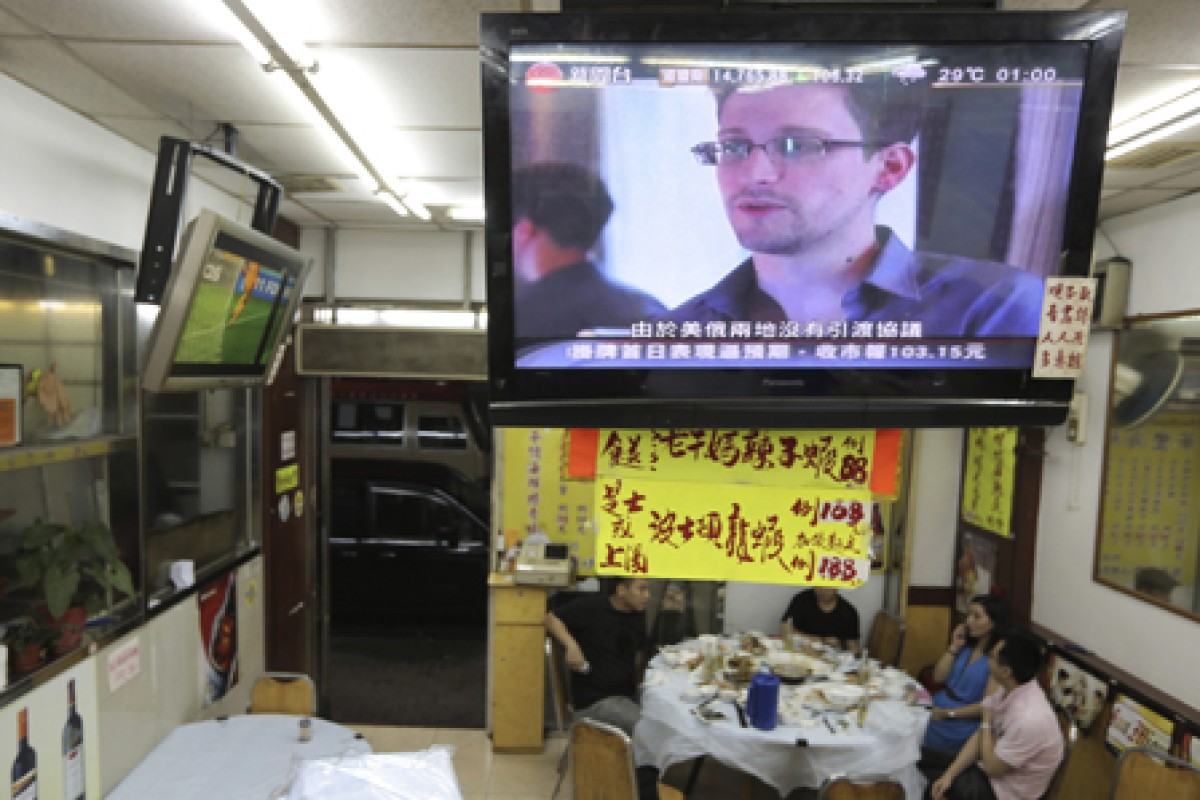
 Edward Snowden on the news in Hong Kong, where he stayed before leaving for Russia.
Edward Snowden on the news in Hong Kong, where he stayed before leaving for Russia.Then one of my fellow students recounted a Chinese legend about a general who was leading his exhausted and thirsty soldiers to war through a desert. To motivate them, the general claimed there was a plum field ahead. So the men cheered and walked as fast as they could - to the battlefield.
The student said that, in this case, a white lie was acceptable.
But I asked her: "What will the soldiers feel when they discover that the plum field isn't there?"
The United States government is also dealing with a country of "disheartened soldiers".
Earlier this month, former intelligence worker Edward Snowden revealed a massive US government programme - in place for seven years - to compile phone records and online data that would help anti-terrorism and counter-intelligence investigations.
The government also accessed personal records kept by major internet providers.
"The public needs to decide whether these programmes and policies are right or wrong," Snowden said.
Even if he broke the law to do so, Snowden made an important point about how a developed, civilised country should strike a balance between the safety of its citizens and protecting their privacy. How could the government take the personal information of Americans without telling them for seven years?
The US was renowned for respecting human rights and freedoms.
Didn't it realise that keeping a huge secret like this for such a long time would ruin its reputation, both at home and globally?
According to US surveys, nearly 80 per cent of Americans believe the government's spying programme is bigger than they think.
This reminds me of the central government's ultra-tight supervision of netizens. Creativity and innovation are suppressed, and press freedom is not allowed. Interestingly, the government does these for "security reasons".
Some people, especially the younger generation, believe transparency and personal privacy are essential for a free society, while secrecy and surveillance lead to tyranny.
I don't exactly agree with these views, but I think there must have been a better way for Snowden to reveal these secrets without putting himself in danger.
Still, if we take the mainland as an example, we see what kind of society the US and others will end up with if there are no Snowdens willing to give up their house, their job and their freedom to tell the citizens the truth.
You might also like:
- Op-Ed: Edward Snowden has given a new definition to patriotism, but his future is dim